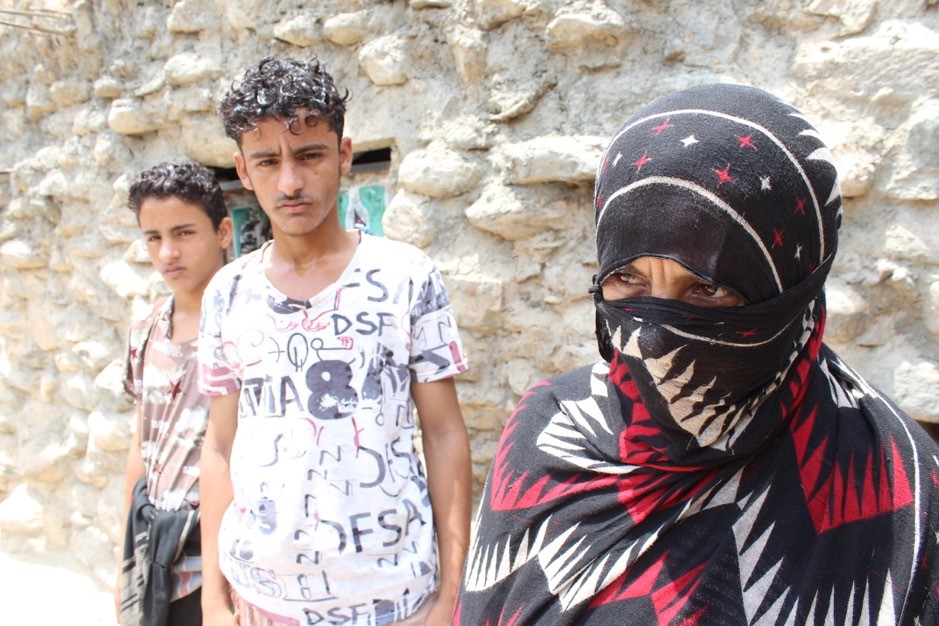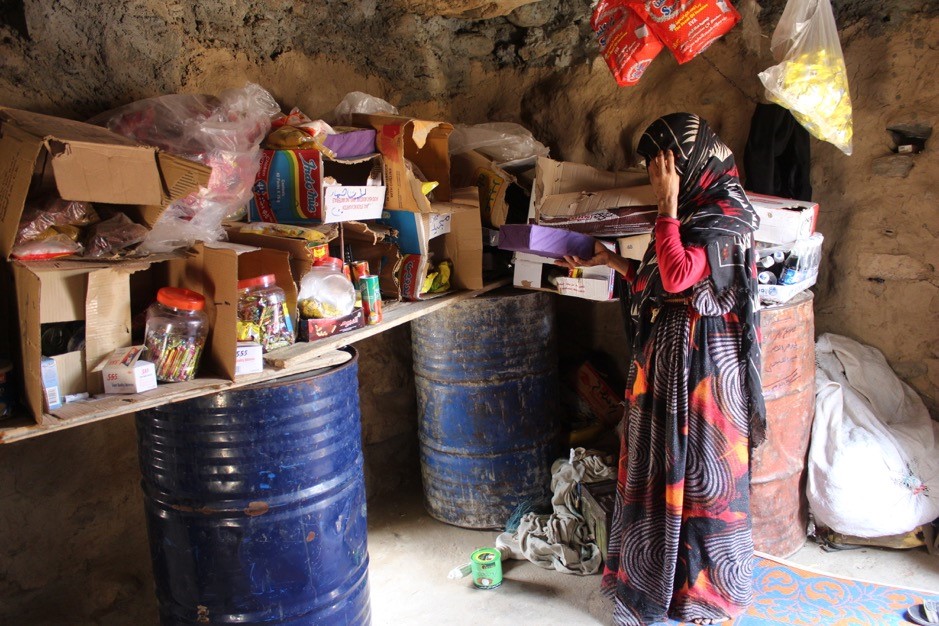Alia Hussein Ali, a 45-year-old widow, is the only provider for her family of six members. They live in a village in Radfan district of Lahj governorate. The village is about five hours away from the district centre.
“I have to be the mother and father of five children and it is difficult to bear,” says Alia who suffered from extreme poverty, made worse by the almost five-year conflict in Yemen. Her children need milk and food every day, but with the rising prices it has become difficult for her to provide them with what they need to be well-nourished.
Alia has no income, and the family often had only one meal a day. Many days they only had bread and water. First, they had to sell their sheep to provide some income and then Alia fell into debt, which made her life even more difficult.
Alia’s dream was to have a small grocery shop, to enable her to meet her family’s food and clothing requirements and provide them with a decent life.
With funding from USAID’s Food for Peace, CARE intervened with the Yemen Emergency Food Assistance project. Alia, like others received one food basket per month over nine months. This meant that she didn’t have to worry about providing food for her family. She started selling some firewood for extra money, then converted one of the rooms of their house into a grocery shop. She bought some simple products and started her small business.
Some traders helped Alia by providing her with goods on loan, which helped her to be able to make some good profit from the shop and buy some cows. The family’s needs are now met and the family’s standard of living improved. Her sons help her in the shop and with caring for their animals, and all her children are now in school.

